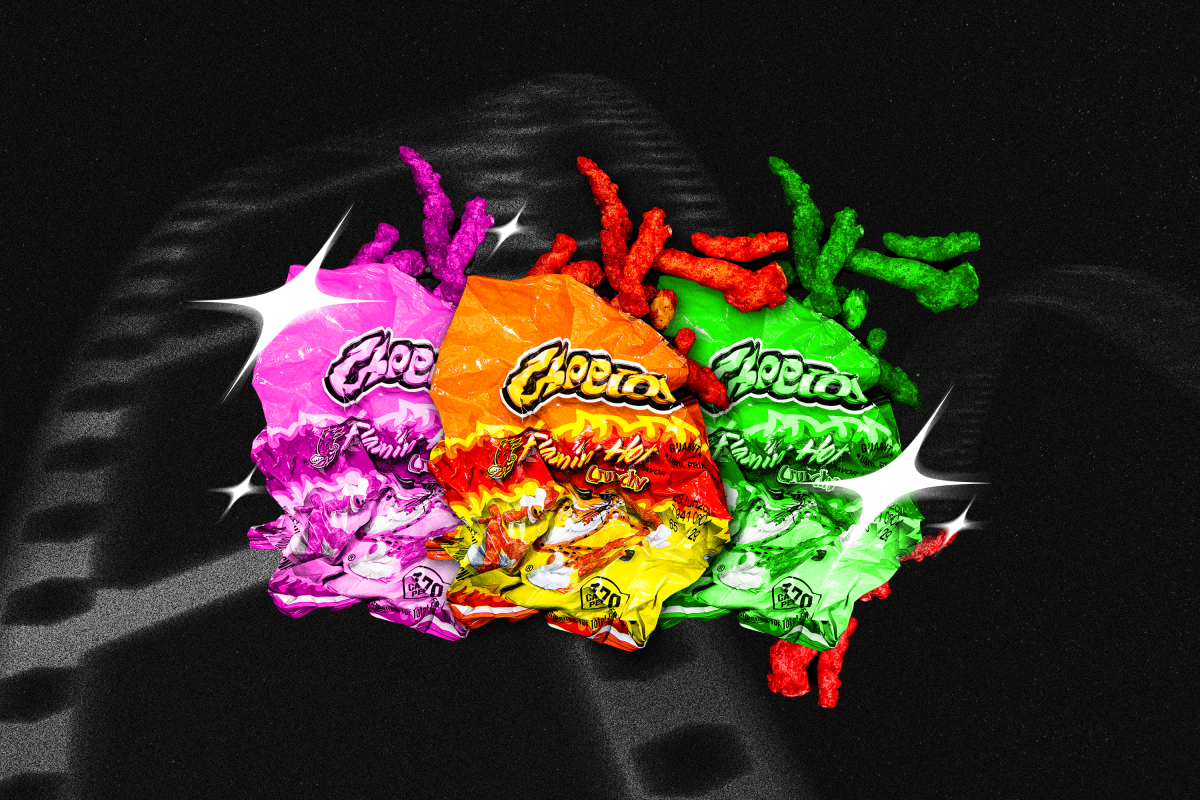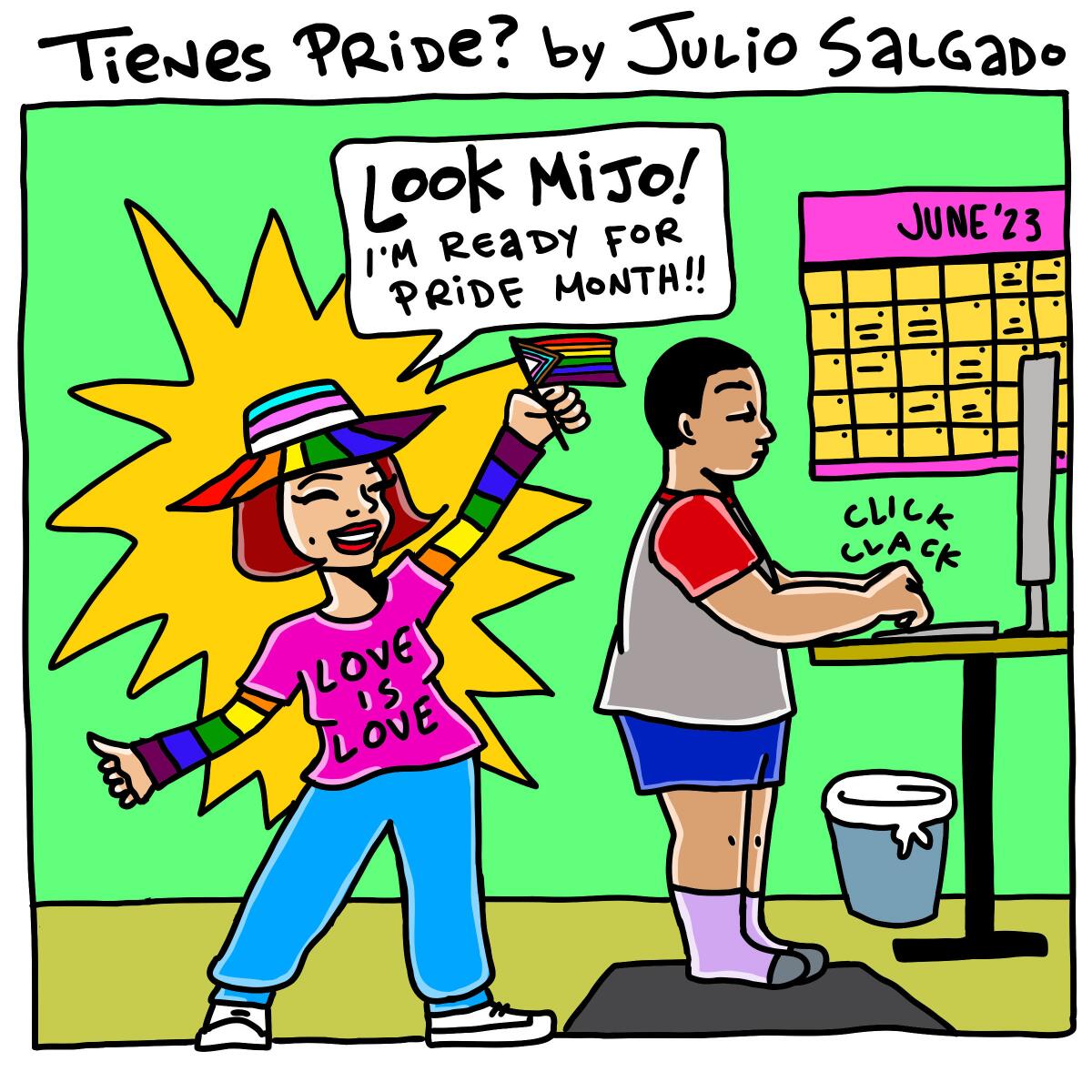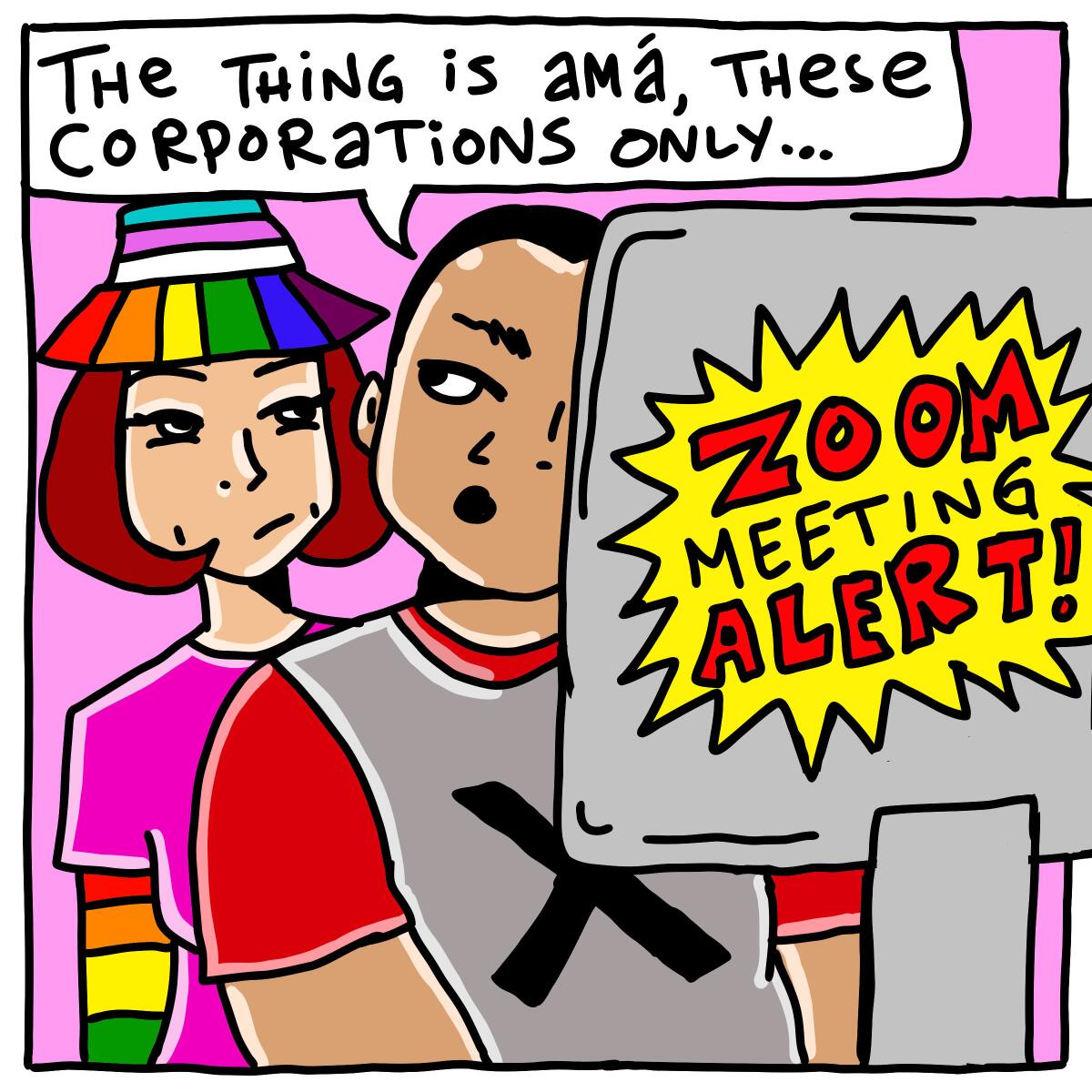Latinx Files: The Flamin’ Hot discourse continues

Do you know how I know there is no singular Latinx experience? Because you can never get us to agree on anything. “Flamin’ Hot” is no exception.
The Eva Longoria-directed corporate biopic, which tells the not-so-true rags-to-riches story of how Mexican American Richard Montañez se puso las pilas and allegedly invented the popular Cheetos line, was released on Hulu and Disney+ on Friday.
The film’s premiere was met with mixed critical response.
Writing for The Times, critic Carlos Aguilar called it a “surprisingly enjoyable crowd-pleaser,” adding that the movie “mostly works because [its cast and director] agree on a poignant, yet not sanctimonious approach that crystallizes the specific fortitude of mining hope from dire struggle.”
Critic Monica Castillo had a different take, asking the following in her RogerEbert.com review:
“What does it say when we lionize a person who says they did something they didn’t and hold them up as a pillar of our community, who, if anything, perfected selling our connections to our culture back to ourselves as a form of identity consumerism?”
It’s a sentiment my colleague Gustavo Arellano agrees with, who blasts the movie in a recent column.
‘“Flamin’ Hot” is the type of feel-good treacle that high school teachers screened for their Mexican American students when I was coming of age in the 1990s to make us feel better about ourselves,” Arellano writes.
“Teachers today will no doubt do the same for their students. That’s what makes ‘Flamin Hot’ not just pandering but pernicious.”
Despite these valid criticisms, people appear to like “Flamin’ Hot.” It currently boasts an 88% audience score on Rotten Tomatoes, and the movie is “the most-watched streaming premiere from Searchlight Pictures, an assertion made by Longoria on Twitter that’s “based on hours watched in its first three days.”
Such has been the reception of the movie that even President Biden, whose immigration policy is similar to his predecessor’s, will be hosting a screening of “Flamin’ Hot” with Latinx leaders on Thursday. Hispanic Heritage Month is kicking off early this year, I suppose. “Si se puadrey,” indeed!
Am I surprised? Not in the slightest.
As someone who in a past life worked at Mitú, one of the most successful purveyors of Latinx identity in meme form, I saw firsthand how well Flamin’ Hot Cheetos content performed. I expected that a movie about the snack to be no different.
I get it, too. I understand the desire to be seen, even if it’s just as a loyal consumer.
It’s not a knock. It would make me a hypocrite to begrudge anyone who relies on brands to create their sense of identity. It’s embarrassing how much money I’ve forked over in the last decade to Adidas, makers of the Mexican national team jersey, for the opportunity to wear my heritage with pride. Even worse is that the team doesn’t have to be good for my wallet to come out.
The Latinx experience chronicled
Get the Latinx Files newsletter for stories that capture the multitudes within our communities.
You may occasionally receive promotional content from the Los Angeles Times.
Yes, I’m still salty that El Tri were eliminated from the World Cup before they could rock the beautiful away jersey — per Adidas, its design features “Mixtec art and Aztec deities to summon the fighting spirit required to rule the soccer world,” which lol no mames.
Latinxs, I’m afraid, are a marketer’s dream.
That much was communicated in a recent Ad Age report, “Why brands shouldn’t wait until 2026 to invest in the Mexican men’s national team.” Co-published by Major League Soccer and Soccer United Marketing — the commercial arm of the MLS and one of the key players behind all those meaningless molero El Tri matches — the report argues that companies stand to profit by associating with the most popular soccer team in America.
“When you take an organization like the Mexican National Team — where fans feel so much pride, passion and love for this team — and pair it with a brand in a smart, tactical, integrated, organic partnership, you see impressive results,” Zack Rose, senior VP at Endeavor Analytics, told Ad Age.
Latinxs as ideal consumers isn’t a new concept either. In 1989, the great Frank Del Olmo wrote about how he associated “the decade of the Hispanic” — a phrase meant to describe the 80s — with efforts to get us to buy more beer.
“As near as I can remember, the phrase was first widely used in the Los Angeles area as part of an advertising campaign in the early ‘80s,” he wrote.
“Then, as now, the Coors Brewing Co. saw the Latino community as a growing market for its beer. So it plastered billboards all around town of a smiling Latino holding a beer and toasting the world as he proclaimed Coors ‘the beer for the Decade of the Hispanic.’”
In the words of my old man, es puro negocio.
I’m not sure how we fix this. I do think that the approach taken by many well-meaning organizations and people, that we are going to earn our dignity and visibility through our wallets, isn’t the right one either. We’ve been loyal consumers for decades. What has that gotten us?
As per “Flamin’ Hot,” I believe you should let people enjoy the movie about a snack with negligible nutritional value as a treat.
But to reiterate, there is no singular Latinx experience, and even if there was, this movie certainly wouldn’t be it.
Consider subscribing to the Los Angeles Times
Your support helps us deliver the news that matters most. Become a subscriber.
Things we read this week that we think you should read
—In case you haven’t read it yet, here’s the Times 2021 story written by Sam Dean that debunks Richard Montañez’ claim that he invented Flamin’ Hot Cheetos. Unsurprisingly, it has been one of the most popular stories on our site this week.
— Jack Herrera, the Times’ new national correspondent, went to El Paso to speak to asylum seekers who were unsuccessfully recruited by independent contractors hired by the state of Florida to board a charter flight headed to Sacramento. It’s a jarring report, and includes this quote of the week given by Maria—a migrant from Venezuela who asked to be identified by her first name only out of fear of retribution—about how pushy the recruiters were being: “She told us not to be afraid — that she didn’t want to steal our hearts or our organs or anything.”
Yikes.
—As a rule, you should always read everything that Times columnist and critic Carolina Miranda writes, and this history of the zoot suit and its lasting cultural impact is no exception.
—The best thing on the Latinternet: Shoutout to David y Fernando and Grupo Solido for keeping up the tradition of Tejano/cumbia/norteño acts doing Spanish covers of English bangers. The Rio Grande Valley (puro 956 cuh!) musicians are responsible for this very enjoyable rendition of Hoobastank’s “The Reason.” The song has gone viral on TikTok in recent weeks—videos about it have amassed more than 31 millions views.
Other acts who have done wonderful covers include Selena y Los Dinos (”Fotos y Recuerdos” is a cover of The Pretenders’ “Back on the Chain Gang”), Los Palominos (“El Ganador” is a cover of ABBA’s “The Winner Takes It All”), and Ramon Ayala y Los Bravos del Norte (“Cuando Yo Era Un Jovencito” is a cover of Lead Belly’s “Cotton Fields”).
And now, for something a little different: how to have the “rainbow capitalism” conversation with your Mexican Catholic mother...sort of.









Julio Salgado is a digital illustrator based in Long Beach. He has previously contributed to the Latinx Files.
Are you a Latinx artist? We want your help telling our stories. Send us your pitches for illustrations, comics, GIFs and more! Email our art director at martina.ibanezbaldor@latimes.com.
The Latinx experience chronicled
Get the Latinx Files newsletter for stories that capture the multitudes within our communities.
You may occasionally receive promotional content from the Los Angeles Times.




